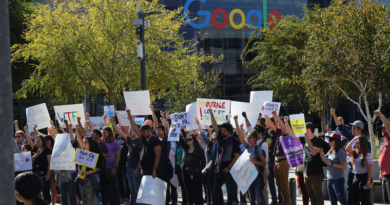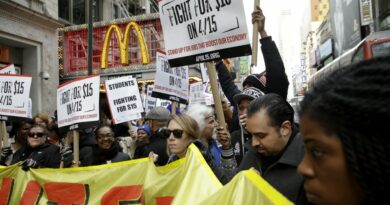Human Resource Management Case Study
[toc]
Executive Summary
Managing human resources is one of the key functions of managers in an organization. This practice should be done effectively in order to ensure that there is efficient utilization of human capital that leads to overall achievement of organizational goals. This can be achieved when there is a good relationship between line managers and their subordinates. Failure to strike this balance may give rise to conflicts in the organization and grievances raised by organization members, leading to slowed and increased costs of operations. This case study explore ways in which conflicts arise in organizations between the staff members and their subordinates, their effects and probable ways in which they can be contained before they can reach the grievance stage and paralyze operations.
Problem Statement
The problem that is being experienced in Sunrise Hotel is a conflict between the General Services Manager, Gill Smith, and Tony Millar who is her subordinate. This conflict has led Mr. Tony to file a grievance against decision made by the General Services Manager.
Decision Criteria
Before any key decision is reached in an organization careful analysis of the problem under consideration must be undertaken. This helps in reducing errors in the decision made.
The First Grievance Meeting
The case of Tony Miller was brought to the Human Resources desk by the General Services Manager, Gill Smith, who wanted to be guided on how to deal with the situation. After a series of deliberations between Gill Smith and me, the following facts were realized; it emerged that the maximum number of employees who were given time off with pay had been reached, according to the “Time-Off” agreement with the trade union. An agreement between the hotel and trade union concerning service with the Reserve Army stipulated that staff members who are also members of the Reserve Army should be granted time off with pay for duties with Reserve Army, subject to the flexibility of hotel. This meant that time would be granted to a member of the Reserve Army, as long as it would not interfere with the normal operations of the hotel. These issues were all considered and it came to a conclusion that, due to the financial strain that the hotel was going through and maximum number of employees that were on paid-off, it would be necessary to deny Tony Millar time-off with pay to attend a training camp with the Reserve Army.
During these grievance meetings, there are some facts, however, that ought to be considered before coming up with a decision. This would have brought both the grieving side and management to an amicable solution that appeal to both sides (Hewstone & Brown, 2006). The first fact is in respect to the agreements that the hotel had signed with various trade unions that are related to this issue. The agreement concerning paid time-off states that no more than six workers should be given time-off at any given one point. It should be noted that already seven members of the staff are on leave, which is in contravention to the agreement’s ceiling number of six.
The second fact that ought to have been considered is the policies of the hotel concerning leave. Whether there was a provision in policies that allow the management to recall members of the staff that are on leave to be recalled when need arises. This would allow continuity of operations in case the maximum number of employees on leave is reached and yet there emerges an emergency case that reduces the number of staff significantly.
The third fact is financial implication of the decision that would be reached after the meeting. The hotel is currently experiencing financial strain. If the number of employees on leave is exceeded significantly, then, the additional overtime allowances that will be incurred by the hotel should be assessed and its implication on operational costs considered before a decision is reached.
Data Analysis
Human Resource Implications Arising from Grievances
This grievance issues brings into focus a number of human resource implications in the organization. Employee motivation is one of the key factors that are emerging in this case. Motivation is a process that elicits controls and sustains a certain pattern of behavior in an individual (Hewstone & Brown, 2006). If an employee is used to doing certain activities in an organization, and then the privilege to do those activities is denied abruptly, he or she will take the denial as a form of punishment and hence become less motivated. Tony Miller has been attending the Reserve Army training for a long time and hence being denied an opportunity to attend the training would reduce his level of motivation.
Another human resource factor that will arise is increased cases of conflicts in the organization which may lead to go-slow or insubordination. The presence of Sheila Simmons, who is a polarizing factor to other employees, may lead to emergence of conflicts. The staff may be led to believe that the general services manager, Gill Smith, is applying double standards. This is due to the fact that seven members of the staff have been granted leave opportunities contrary to the trade union agreement that limits the maximum number of six, and yet Tony Millar is being denied leave to attend a training camp.
The trade union may also raise an action against the hotel for contravening the agreement the hotel had signed in respect to its employees and the Reserved Army. The union will have a feeling that the hotel had already exceeded the number of employees on leave and hence it had an obligation to release Tony Millar for training. This would negatively affect the working relationship between the management and the staff, aggravated by the industrial action.
Recommendations
Disciplinary action on Tony Millar
When Tony Millar return to work, the general services manager, Gill Smith, should sermon him to her office for a disciplinary interview. She should then invoke principle 2.b of the disciplinary procedure, by informing him of his conduct of not reporting for duty during the period he was supposed to attend the Reserve Army training. Tony Millar should then be given an opportunity to explain and justify the reasons that made him not to report for work and the coincidence with the Reserve Army training. Since the disciplinary procedure give an employee a right to attend disciplinary interview accompanied by a colleague or employee representative, Tony Millar should be allowed therefore to attend the interview with his representative.
This course of action will give Tony Millar a chance to prove and justify that he was actually ill, during the period that he stayed away, beyond any reasonable doubt. It will also prevent Gill Smith from raising a disciplinary action against Tony Millar, only for him to prove later that he was actually ill.
Investigation
After Tony Millar has furnished the general services manager with evidence of his medication, I would undertake an investigation into the validity of the evidence provided by Tony Millar. This would include determining the facility that he went for medical attention. Telephone calls would be made to the particular medical practitioner to ascertain if, in fact, Tony Millar was attended to by him or her. The type of illness that he suffered from and whether it warranted his absence at work would be determined through communication with his doctor.
Clarification would also be sought from the Reserve Army officials as to whether Tony Miller attended the training camp. A visit to their station or training ground would be done and records on training attendance examined to determine attendance by Tony Millar.
Disciplinary Action
After careful examination of the records from both the medical practitioner, presented by the accused, and the Reserve Army training reports, the validity of the claims will be established. If it emerges that Tony Millar actually attended the Reserve Army weekend training camp, this would amount to gross misconduct; a serious act of insubordination and falsification of documents. This is due to the fact that Toy Millar failed to adhere to the decision made by his seniors and the management not to attend the weekend training camp. He therefore disregarded these decisions and opted to attend the Reserve Army training camp, cheated that he was ill and forged documents to mislead the management into believing that he was sick. I would therefore propose that disciplinary action be taken against Tony Millar for Gross Misconduct on serious act of insubordination and deliberate falsification of records, under principle 4 on Disciplinary Procedure. He should therefore be suspended from work on full pay while the senior management investigates the matter further.
This act would ensure that decisions made my seniors are fully adhered to and respected by subordinates in the hotel, because it will be an example to other staff members who may raise unnecessary grievances which consumes valuable time in meetings.
Action and Implementation Plan
There should be a harmonious working relationship between seniors and their subordinates in all departments of t he hotel for achievement of objectives of the hotel (Martindale, 2010). The following measure can be implemented in order to achieve a good working relationship between the parties to this dispute and the general services department as a whole:
Firstly, a culture should be introduced in the general services department whereby over-performance is recognized the General Services Manager, and rewards given the best performing employee. This will act as a source of motivation which reduces conflicts between seniors and their subordinates.
Secondly, the senior management should ensure that line managers are trained so that they can identify and handle possible grievances early before they can emerge.
Thirdly, use mediation as a primary means of settling disputes ahead of formal grievances.
Finally, the general services manager should hold regular informal meetings with the staff members that show signs of discomfort to ensure that issues do not progress into grievances.
If the above recommendations are adopted and implemented, there would be a good working relationship between the general services manager and her entire department. This will translate to increased quality service to our customers and higher revenues.
References
Hewstone, M. & Brown, R. (2006). Contact and Conflict in Intergroup Encounters. Oxford: Basil Blackwell Ltd.
Martindale, N. (22 April, 2010) Grievances – What Employers need to know to avoid or deal with them. Retrieved from; http://www.personneltoday.com/articles/2010/04/22/55312/grievances-what-employers-need-to-know-to-avoid-or-deal-with-them.html.




